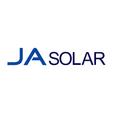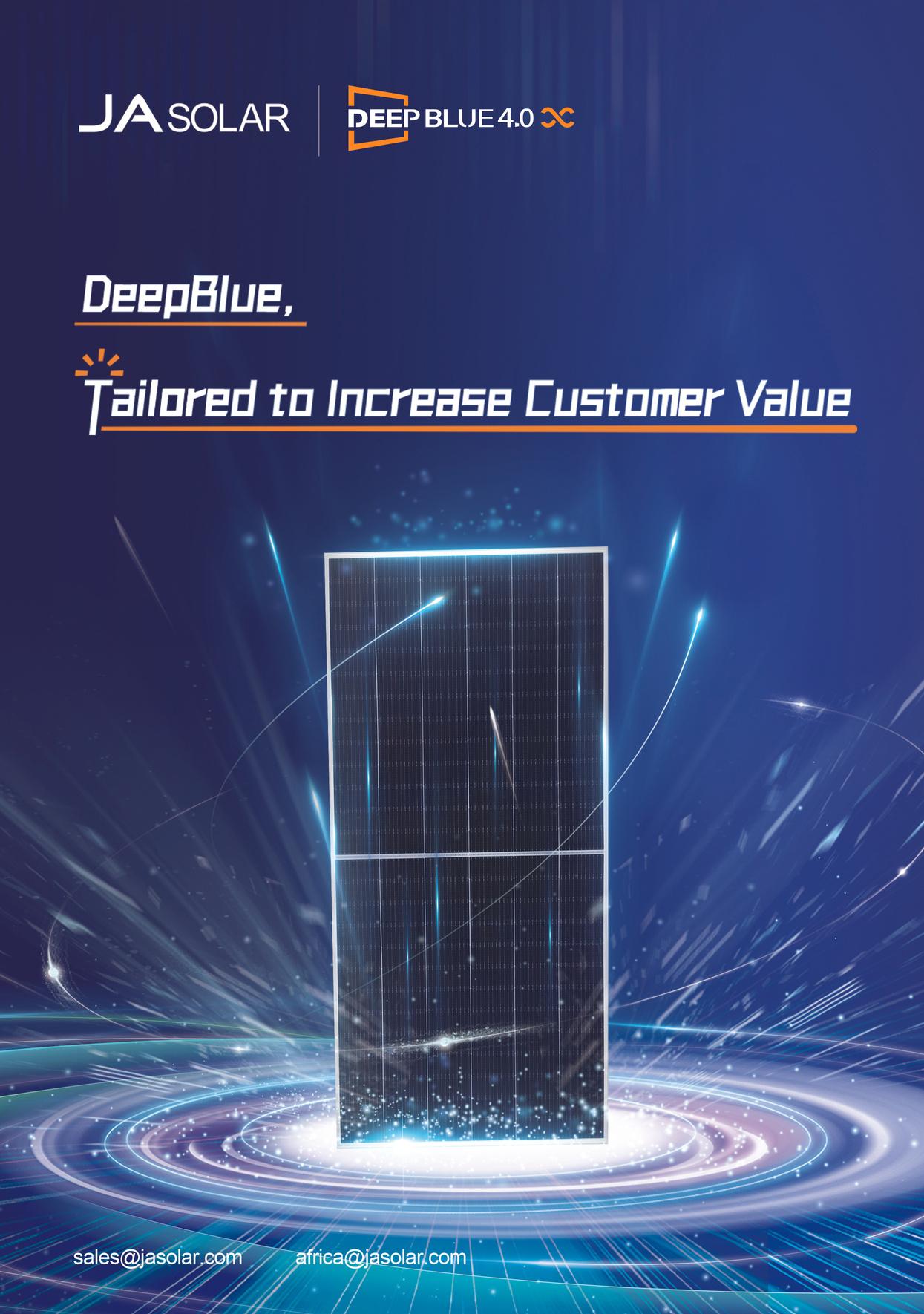






































































Rensource stands out for its engineering and design expertise– we can deliver a solar solution for even the largest C&I business.
Our systems allow businesses to achieve their sustainability goals and avoid carbon emissions
Our pipeline of projects grew by 150% in 2022
We have experienced skyrocketing demand from small business enterprises and large corporate organizations who are seeing cost savings when they compare solar to diesel power
What services do you offer in the African region?
Rensource is a commercial and industrial solar power provider that designs, installs, and manages solar solutions for businesses that give them predictable rates for power This prevents worrying about external shocks to fuel prices, like the War in Ukraine and inflation, for example This allows businesses to manage their expenses, plan for expansion, and, importantly, hire more Nigerians Our systems allow businesses to achieve their sustainability goals and avoid carbon emissions.
How has the year 2022 been for Rensource Energy?
This year was a tremendous growth year for Rensource We saw a 30% to 40% growth quarter-on-quarter One driver of this has been the increase in diesel costs, which has directly impacted the demand for solar services like those we provide. The cost of generating diesel-powered electricity has almost tripled this year
We have experienced skyrocketing demand from small business enterprises and large corporate organizations who are seeing cost savings when they compare solar to diesel power Our pipeline of projects grew by 150% in 2022
We expect this growth to continue despite economic disruptions because at the end of the day, businesses need to keep operating, and reliable, affordable power is key to that The fact that we provide reliable and affordable sustainable power is even better
The numbers on investment flows into African energy do not lie: $40 billion was invested in African energy even during the 2020 pandemic."
What makes your services unique and outstanding?
Rensource stands out for its engineering and design expertise– we can deliver a solar solution for even the largest C&I business Our installations are flexible, efficient and use top-ofthe-line technology We also have the ability to fund our installations entirely which means we deliver our projects with a short turnaround.
How will the African solar market growth in the next five years? What is your market outlook?
The C&I sector will move the needle on energy access. C&I represents only 8% of the total installed capacity in Africa, but it represented 19% of the newly installed capacity in 2021 The numbers on investment flows into African energy do not lie: $40 billion was invested in African energy even during the 2020 pandemic At scale and with a focus on commercial and industrial sectors, clean energy can power Africa’s industrialization This is cause for great optimism.
The signs of a coming recession are concerning, but the C&I solar sector, particularly, should prove to be resilient, given its fundamental role in powering businesses Businesses need the reliability and savings that come with a solar installation which is even more relevant in slowing economic growth and high fuel prices

What are your growth and expansion plans for 2023?
Our focus is complete construction and installation on 8MW of projects and continues to expand our project pipeline, which currently sits at 70W.

In 2022, we progressed on our journey to provide clean, reliable, and affordable power to over 1 billion people across Africa.
As a sector, we need “full stack” solutions across the value chain – power generation, transmission & distribution, smart metering, and tech-enabled operations
Nigeria’s renewable energy industry will continue to grow, especially once the petrol subsidy has fully been removed, which is scheduled later in 2023
By the end of 2023, our goal is to provide power to over 100,000 Nigerians and over 250,000 people across the African continent
Tell us about the services PowerGen provides
PowerGen Renewable Energy is a leading private power company operating across Africa

We build and manage power infrastructure to deliver clean, reliable, and affordable electricity to customers We do this for single-off-takers, rural communities, and peri-urban & urban areas
How has PowerGen's business performed in 2022?
In 2022, we made progress on our journey to provide clean, reliable, and affordable power to over 1 billion people across Africa. We grew our impact on our customers, their families, and their communities Here are some stats that illustrate how PowerGen customers value the electricity we provide:
97% were very satisfied or satisfied with their PowerGen energy services
95% have had a positive life change through improved income, increased hours for children’s education, or improved health
This is the scale we achieved in 2022:
More than 125,000 people served across Africa
Over 2 GWh (gigawatt hours) of electricity consumed
Over 2,240,00 kilograms of CO2 emissions avoided
Customer satisfaction score (NPS) that ranks in the 99th percentile amongst power utilities
Aggregate grid distribution network that spans the distance from Nairobi to Malawi
The impact that we are making today on hundreds of thousands of people represents progress - progress toward tackling climate and driving economic growth. We are excited at what we have been able to achieve, yet we remain eager to do much more. These empowering results should be the reality across the entire continent To achieve our vision of clean, reliable, and affordable power across Africa, there remains a lot of work to do
How has technology contributed to PowerGen's growth in 2022?
As a sector, we need “full stack” solutions across the value chain – power generation, transmission & distribution, smart metering, and tech-enabled operations. Importantly new tech is driving operating efficiency – smart metering, prepaid mobile payments, remote monitoring and controls, and data-driven analytics For the new generation of power utilities, the new tech is now standard
What is your view on Nigeria's current solar market? How do you see it evolving in 2023?

The Nigerian solar market continues to grow and improve. The Rural Electrification Agency of Nigeria, led by Ahmad Salihijo, continues to provide an enabling environment for solar developers and continues to help accelerate the sector This is in conjunction with the support of the Nigerian Electricity Regulatory Commission There continues to be ongoing challenges relating to exchange rates and currency devaluation, but we remain optimistic about the potential of the solar market in 2023
In 2023, the federal government of Nigeria is set to discontinue petrol subsidy payments by the end of June Nigeria’s renewable energy industry theoretically will experience massive growth once the subsidy has fully been removed We saw a large uptick in demand in 2022 when fuel prices climbed early in the year and we expect an even larger increase in 2023
What is your company's aim for 2023?
By the end of 2023, our goal is to provide power to over 100,000 Nigerians and over 250,000 people across the African continent We look to continue our focus on the Customer Experience as well as our commitment to Health and Safety
Our primary aim is to continue our deployment of distributed renewable energy systems to both support climate change initiatives and the electrification of Africa
PowerGen Renewable Energy is a leading private power company operating across Africa. We build and manage power infrastructure to deliver clean, reliable, and affordable electricity to customers "


As a fully vertically integrated independent power producer (IPP), we design, invest, build, operate and maintain our own portfolio of energy assets.
Together with its strategic partners, in East Africa specifically, NSE secured a project portfolio of 4 3 MWp for the rollout of grid-tied solar solutions to a major building services conglomerate.
NSE anticipates large private sector investment to continue to scale South Africa’s energy generation capacity
NSE anticipates an improvement in local policy and legislation throughout Africa, as well as immense private sector investment to accelerate the energy transition
Please brief us about the services New Southern Energy provides.
Founded in 2010, New Southern Energy has become one of the leading renewable energy solution providers to the commercial and industrial markets in Southern and East Africa
As a fully vertically integrated independent power producer (IPP), we design, invest, build, operate and maintain our own portfolio of energy assets Our end-to-end solutions include project development, project permitting & licensing, project contracting and funding, network planning and off-site energy generation through wheeling This enables us to provide holistic renewable energy solutions that allow for maximum renewable energy penetration, significant reductions in carbon emissions, improved energy security and energy cost savings
What have been some of the major projects for NSE in 2022?
Despite the economic and political mayhem that has impacted many companies worldwide, 2022 was a year of continued growth and innovation at NSE, Having expanded our pipeline, NSE has emerged from the pandemic stronger Together with its strategic partners, in East Africa specifically,
NSE secured a project portfolio of 4 3 MWp for the rollout of grid-tied solar solutions to a major building services conglomerate In other parts of Africa, we, commissioned landmark sites and continued our portfolio development
What do you have to say about Southern Africa's solar market at present?
2022 was another challenging year for the South African energy sector The national utility, Eskom recently declared a state of emergency for the national grid, with no end to rolling power outages in sight The urgent need for alternative energy generation capacity has been compounded by the climate crisis, which has prompted the need for large-scale energy infrastructure investment to help meet COP27 renewable energy targets
Owing to the increasing blackouts in the country, depleted fuel reserves and the excessive increase in the cost of power, NSE believes that several opportunities are expected to be presented for the market players in South Africa to bridge the supply and demand gap With solar energy being one of the most readily accessible and inexpensive resources in South Africa, NSE anticipates large private sector investment to continue to scale South Africa’s energy generation capacity
What is your solar market outlook for the African region for 2023?

Africa faces some complex energy problems and we at NSE believe that renewable energy is key to enabling Africa to reach its full potential Although progress has been made to drive renewable energy development and investment in Africa, there still exists the need to establish electricity infrastructure such as power stations, transmission and distribution grids to electrify the continent With Africa being set to home more than a quarter of the world’s population by 2050, NSE believes that solar energy is the most suitable energy source to alleviate the increasing pressure on its resources As such, NSE anticipates an improvement in local policy and legislation throughout Africa, as well as immense private sector investment to accelerate the energy transition
What can we expect from NSE in 2023?
Considering that only a nominal percentage of the continent’s population has access to power, we believe that our solutions can contribute to building sustainable economies and improving quality of life Our mission is to do exactly that through playing a role in developing increased self-generation renewable energy capacity across the continent
For more details, visit: https://newsouthernenergy com
Our mission is to do exactly that through playing a role in developing increased selfgeneration renewable energy capacity across the continent."
In other parts of Africa, we, commissioned landmark sites and continued our portfolio development."
JA Solar entered into a partnership with AMEA Power, one of the largest developers in the UAE, and will join hands with a consortium consisting of China Energy Engineering Group, China Energy International Group, and Zhejiang Thermal Power Construction to provide an integrated solution for the gigawatt-scale wind & photovoltaics (PV) energy projects AMEA is embarking on Among them, the Kom Ombo Abydos project in Egypt, with a capacity of 560MW, will be the largest single PV project in the country upon completion JA Solar will supply all DeepBlue 3 0 Pro-highefficiency modules for the project Construction of the project commenced in early January 2023 and is expected to be completed within 19 months
The Kom Ombo Abydos PV project in Egypt is developed, owned, and operated by AMEA Power and financed by International Finance Corporation (IFC), Japan International Cooperation Agency (JICA), and the Dutch Entrepreneurial Development Bank (FMO) Upon completion, the project will provide clean electricity to nearly one million Egyptian residents
The DeepBlue 3 0 Pro module was selected for the project using JA Solar's proprietary Gapless Flexible Interconnection (GFI) technology. With a module conversion efficiency of 21 7%, integrating advantages of higher conversion efficiency, excellent power generation capacity, and high reliability, DeepBlue 3 0 Pro perfectly balances quality, efficiency, and cost, offering customers the optimal levelized cost of energy (LCOE) and ensuring constant high power output over the life cycle of the PV plant
Currently, traditional fossil energy still dominates Egypt's energy system, accounting for up to 90% of the total Following the global trend towards carbon neutrality, Egypt has in recent years actively promoted the development and application of renewable energy and set the goal of increasing the electricity supply from renewable energy to 42% by 2035
JA Solar will supply all DeepBlue 3.0 Prohigh-efficiency modules for the project.







Construction of the project commenced in early January 2023 and is expected to be completed within 19 months
In November 2022, Egypt hosted the 27th Conference of the Parties (COP27) of the United Nations Framework Convention on Climate Change (UNFCCC) As a manufacturer in the renewable energy industry, JA Solar participated actively in the conference and related activities, and continuously practice the sustainable development model of "Green to Green Green to Grow and Green to Great".
Yang Aiqing, Member of the Board and Rotating President of JA Solar, commented, it is an honor for JA Solar to participate in the construction of the Kom Ombo Abydos project to make PV energy affordable and accessible local residents Africa has low access to electricity, but is rich in sunlight and is uniquely positioned to develop solar energy For more people to have access to efficient and reliable green electricity, JA Solar has been actively promoting the development of the African PV market Since its establishment, JA Solar has set the corporate mission of " Develop solar power to benefit the entire human race" It has committed and will continuously try to promote the development of PV technology and the application of PV around the world
HigherEfficiency&Power
Gaplessflexibleinterconnection leadingtoexcellentaestheticappearance
ExtraBenefitsfromBifacial
Capableofgeneratingadditional5-15% energyrelativetomonofacialmoduleswith thesameratedpower


HONORARY AWARD:
Le Commissariat aux Energies Renouvelables et à l’Efficacité Energétique (CEREFE)

COMPANY EXCELLENCE AWARDS:
Best Solar Company of the Year - Module


JA Solar
Best Solar Company of Year- EPC
EVOTRIK



Best Solar Company of the Year- Distributor





Securité 2000 Technique
TECHNOLOGY EXCELLENCE AWARDS:
Best Solar Technology of the Year

JA Solar
MASTERS OF CORPORATE LEADERSHIP AWARDS:

West Africa has one the lowest electrification rates and some of the high electricity bills in Sub-Saharan Africa In addition, rising oil prices ha increased liabilities for electricity utilities This has led to countries fac an acute power supply crisis which could threaten their economic grow To mitigate the energy security crisis, the western African region has tak several steps to integrate renewable energy into the regional grid.

The West African Power Pool (WAPP) was created by Decision
A/DEC 5/12/99 of the Twenty-Second Summit of the ECOWAS Authority of Heads of State and Government. By Decision A/DEC.18/01/06, the TwentyNinth Summit of the ECOWAS Authority of Heads of State and Government held in Niamey adopted the Articles of Agreement for WAPP organization and functions The mission and vision of the WAPP are to promote and develop power generation and transmission infrastructures as well as to coordinate power exchange among the ECOWAS member states by integrating the national power systems in a unified regional electric market to provide a reliable and affordable energy supply at a competitive price for the ECOWAS region's citizens
ECOWAS or the Economic Community of West African States is a treaty signed in Lagos on 28th May 1975, between the Heads of State and Governments of fifteen West African Countries The Treaty of Lagos was signed by the 15 Heads of State and the Government of Benin, Burkina Faso, Cote d'Ivoire, The Gambia, Ghana, Guinea, Guinea Bissau, Liberia, Mali, Mauritania, Niger, Nigeria, Sierra Leone, Senegal, and Togo, with its stated mission to promote economic integration across the region
The Regional Electricity Access and Battery-Energy Storage Technologies

Project, 2021
In June 2021, the World Bank Group contributed $465 million to west Africa to increase energy access and integrate renewable energy under the Regional Electricity Access and Battery Energy Storage Technologies Project (BEST) It aimed at providing electricity access to more than 1 million Sahelans, improving the stability of the power grid for another 3 5 million, building the capacity of ECOWAS Regional Electricity Regulatory Authority (ERERA), as well as strengthening the WAPP's network operation through battery- energy storage technologies infrastructure Cote d'Ivoire, Niger, and Mali, under the ECOWAS member states, the project was designed to finance BEST equipment to improve the stability of the regional electricity network by increasing the energy reserve in these countries and facilitating the integration of variable renewable energy expected to be able to store and dispatch ng peak hours using battery-energy storage low them to rely less on carbon-intensive
generation technologies when there is no sun shining or wind blowing The BEST project was expected to encourage privatesector participation in the region It also supported the market for renewable energies, since the battery-energy storage capacity built under the project was to accommodate the 793 MW new solar power capacity WAPP plans to build in the three countries
The Public–Private Infrastructure Advisory Facility, PPIAFsupported technical assistance (TA) in helping prepare the ECOWAS Regional Battery Storage project These guidelines addressed issues such as identifying, structuring, and preparing PPPs The general framework was designed to help leverage private capital for BESS. It combines both the managerial and investment expertise of managers in operating RE and battery stock systems with private-sector investment The PPIAF technical reports focused on BESS project development through public-private partnerships (PPPs) PPIAF's technical assistance supported a pre-feasibility analysis for potential BESS projects in Cote D'Ivoire and Mali In addition to the technical assistance (TA), 135 officials of ECOWAS, West Africa Power Pool (WAPP), and utilities from Mali and Cote D'Ivoire were trained on BESS topics They received training in operations and maintenance, environmental impact, social issues, and social issues involved with the development of battery storage projects Based on the PPIAF technical assessment, the World Bank approved a project to install 205 megawatt-hours (MWh) battery storage systems to provide frequency control to the WAPP power system. The equipment was to be installed in three sub-stations in Cote d’Ivoire (105 MWh), Mali (80 MWh), and Niger (20 MWh)
In Dec 2022, the World Bank approved $311 million to increase grid-connected renewable energy capacity in the west Africa region under the new Regional Emergency Solar Power Intervention Project (RESPITE) A $20 million grant is included in the new project to facilitate future regional power trading and to strengthen the technical and institutional capacities of the West Africa Power Pool (WAPP), to carry out its regional mandate The RESPITE's main purpose is to quickly increase renewable energy capacity that is connected to the grid and strengthen regional integration within the participating countries. It will finance the operation and installation of approximately 106MW of solar PV with battery energy storage and energy storage systems and also 41MW expanded hydroelectric capacity. The fund will also support electricity distribution and transmission intervention across the four participating countries The project will encourage leading international private developers into smaller and more fragile countries It will also prove the viability of grid-connected solar and storage in participating countries
Access to reliable and clean electricity is still a problem for sub-Saharan Africa's large population, particularly those who live far from the interconnected grid. Off-grid solar technologies will play an important role in population growth in sub-Saharan Africa, in order to achieve universal energy access by 2030 A report titled "Off-Grid Solar Market Trends Report 2020: State of the Sector" - published by the World Bank's Lighting Global and International Finance Corp (IFC), GOGLA, and Efficiency for Access Coalitionstates that off-grid solar will be the cheapest option for 41% of all new household connections between 2020-2030.
Power Africa Off-Grid Project (PAOP) :

PAOP program is helping to build the off-grid marketplace in Kenya and the sub-Saharan Africa region to increase sustainable private sector-led off-grid energy access They offer broad-based market intelligence for investors to help with financial product design, advise governments on setting supportive policy frameworks and provide support This project is helping to accelerate private sector-led energy access by helping to create the off-grid marketplace It focuses on market intelligence, policy, and regulation, as well as access to finance and cross-sectoral integration By 2022, the Power Africa Off Grid Project (PAOP) will enable more than two million Kenyans to access electricity through solar home systems and mini-grids to meet their needs for their homes and businesses
PAOP BUDGET: USD $50 million
PAOP DURATION: 2018-2022
Countries 2 :
Country: Liberia

Revised Policy: Consumer service and quality-of-supply regulations
Policy Impact: The Project reviewed the Draft Customer Service and Quality Supply Regulations for Service Providers in the electricity industry and submitted a memo to the Liberia Electricity Regulatory Commission (LERC) The Project’s input included updating the list of professions governed by the regulation.
Countries 3 :
Sub-Saharan Africa (Active in over 25 countries) Focus countries:
PAOP ACTIVITY LOCATIONS
Kenya, Uganda, Tanzania, Ethiopia, Rwanda, Democratic Republic of Congo, Cameroon, Niger, Liberia, Côte D’Ivoire, Ghana, and Senegal
PAOP IMPLEMENTING PARTNER: Research Triangle International (RTI)
PAOP KEY PARTNERS: Tetra Tech, Fraym, Norton Rose Fulbright, Practical Action Consulting

National Policies That Affect The Off-Grid Adoption In Sub-Saharan African
Countries 1 :
Country: Burkina Faso

Revised Policy: Off-grid solar product quality control roadmap
Policy Impact: The Project reviewed the decree on quality control for solar equipment drafted by the National Agency for Renewable Energy and Energy Efficiency The Project also has been collaborating with the Tony Blair Institute (TBI) and Beyond the Grid Fund for Africa (BGFA) The main challenge is an institutional conflict between the Agency for Standards, Metrology, and Quality and ANEREE, as both are being assigned similar responsibilities in the quality control process. This overlap might lead to more burden and cost for solar companies when importing products to Burkina Faso
Country: Niger

Revised Policy: Notes on mini-grid regulations
Policy Impact: The Project submitted a note to the Niger Rural Electrification Agency (Agence Nigérienne de Promotion de l’Electrification en Milieu Rural [ANPER]) on ways to solve issues with mini-grid regulations Currently, there is a contradiction between the bottom-up approach and the Government of Niger’s competitive procurement process ANPER agreed with the suggestions and will revise the regulations.
Revised Policy: Draft ministerial decree on the quality control of solar equipment and compliance control of solar installations
Drafted Policy Impact: At the request of the National Agency of Solar Energy (Agence Nationale d’Énergie Solaire [ANERSOL]), the Project reviewed the draft regulation that will govern quality control of solar equipment and standards assessments of solar installations in Niger
Source: https://pdf.usaid.gov/pdf docs/PA00Z68H.pdf, USAID Fiscal Year 2021 Power Africa Off-Grid Annual Report


Around the world, renewable energy generators have been ente power purchase agreements with corporates (PPAs) These a term contracts that allow corporates to obtain clean electricity long term This has seen a decrease in renewable energy cos risk premiums, and increased competition in the eq manufacturing industry (wind turbines, solar panels, etc.). According to Bird & Bird's report, the global corporate renewable PPA volumes climbed 23.7 GW in 2020. The trend is expected not to slow down. While recently the African region saw increased uptake of corporate renewable power, sub-Saharan African countries may face particular regulatory challenges. These challenges include strict license requirements and a dearth of net-metering options These barriers need to be removed if Africa is to become a leader in corporate renewable energy PPA
A corporate renewable PPA (Corporate Renewable Power Purchase Agreement) is an agreement between a renewable energy producer and a corporate customer It allows consumers to buy renewable energy directly from the developer, at a set pricing scheme, and not from the power utility. Renewable power is derived from many renewable and nonrenewable sources The contract can be for as little as a few years up to more than twenty years
eleven hydroelectric projects have been or are being developed Nareva runs the Akhenfir and Foum El Oud wind farms with a combined capacity of 200 MW ACWA Power has developed 120 MW Khalladi, which began operation in December 2017 This wind farm supplies 80% of its output under long-term PPAs to cement manufacturers Holcim Morocco Asment and Cimat. The remainder is sold under shortterm agreements to other commercial customers Voltalia is one example of a hydro project It has been granted permits to build two hydropower stations of 9 8 MW each in Morocco's MiddleAtlas area. The electricity produced will be sold under longterm, private PPAs that are currently being negotiated with corporate clients Platinum Power has five projects in development that have been authorized by Law 13-09.
Barriers to the adaptation of corporate PPA include particular difficulties in grid access and IPP market accessibility. In these cases, procedures for receiving grid connections are seen as opaque and lack predictability Dec 2021 saw the adoption of the grid code, but it did not deliver transparency in grid connection procedures or rules.
Recently, two African countries namely Morocco and South Africa played a major role in adopting corporate renewable PPA for their country’s commercial and industrial power consumers.
Morocco's 2009 National Renewable Energy Strategy was reaffirmed by Law 13-09, which allows operators of renewable energy production plants to enter into direct PPAs with end-users in order to sell the electricity they produce. For HV and MV clients, this is officially possible. itted to its 2030 renewable-energy target An d renewable energy capacity places it on track der this Law, at least seven wind farms and
On September 2, 2022, the Minister of Mineral Resources and Energy released draft amendments to Schedule 2 of the Electricity Regulation (Act 4 of 2006, ERA) The principal change proposed is to raise the licensing threshold to 100MW This exemption exempts generation facilities, including those with energy storage, of unrestricted power with a point for connection on the distribution or transmission power system, and thus, the need to obtain licenses After the removal of licensing threshold, SOLA Group and African Rainbow Energy reached a financial close on 200MW solar PV projects for Tronox Mineral Sands, making these the largest corporate renewable energy Power Purchase Agreements in Africa The projects will fulfill obligations under a bilateral electricity sale agreement between Tronox mineral Sands and SOLA Group Through wheeling arrangements made with Eskom, these renewable energy facilities are expected to supply electricity to five Tronox facilities located in the Western Cape or KwaZulu Natal for their own purposes Tronox's operations require a high level of energy and will reduce global carbon emissions by 13%
This project has been hailed as a breakthrough in the private energy market. It also opened the door to more similar projects. As the government finalizes plans to create a trading marketplace on the national grid, the options for private buyers in developing projects will increase.





